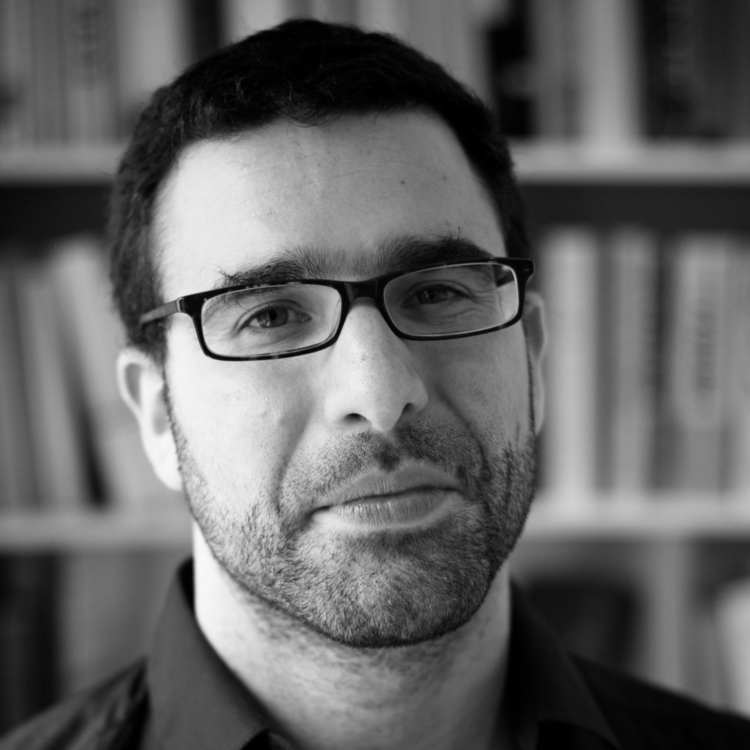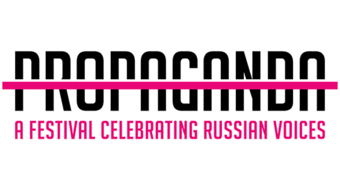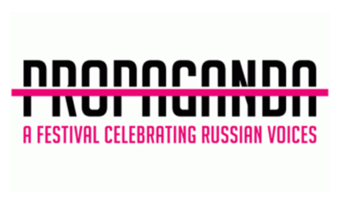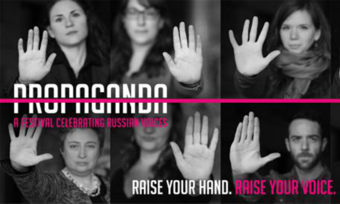On Russian Freedom
Vladimir Nabokov and the Spirit of Play
This series of articles accompanies PROPAGANDA: A Festival Celebrating Russian Voices. Through the lens of contemporary Russian theater, the series spotlights Russia's recent anti-propaganda law in relation to sport, performance, and LGBT and Olympic history. The series is curated by Lauren Keating, the Festival's Producing Artistic Director.
When Vladimir Putin invokes “traditional Russian values” to defend his suppression of freedoms of speech, the individual, and individual sexuality, we cannot appeal to the Russian people to stand up for the rights of sexual and political dissidents; we cannot pretend that the democratic will is on our side. But we can in angry response invoke another Russian tradition and another more inspiring Vladimir: Vladimir Nabokov, one of the great Russian novelists of the twentieth century, and the champion of an often forgotten tradition of Russian liberalism which, since the days of Pushkin, has upheld the freedom of the individual against Tsar, State, and People. And we are encouraged to do so at the moment when the Sochi Olympics are being commandeered as a platform for Putin’s bullyboy pride and mass machismo; as it happens, Nabokov wrote in 1921 a poem, “Olympicum” celebrating Olympic sport as the expression of individual freedom, and in 1925 he gave a speech on the same theme, entitled “Play,” part of which will be read at Propaganda: A Festival Celebrating Russian Voices in New York.
In the introduction to his Lectures on Russian Literature, Nabokov, having spoken eloquently of an eternal battle waged in Russia, between the forces of artistic freedom and the repression of the State, ended by quoting a little poem by his hero Pushkin, “From Pindemont” (1836):
Whom shall we serve – the people or the State?
The poet does not care – so let them wait.
To give account to none, to be one’s own
Vassal and lord, to please oneself alone,
To bend neither one’s neck, nor inner schemes,
Nor conscience to obtain some thing that seems
Power but is a flunkey’s coat; to stroll
In one’s own wake, admiring the divine
Beauties of Nature and to feel one’s soul
Melt in the glow of man’s inspired design
—that is the blessing, those are the rights!
Even now, the poem is radical, not shouting for one ideology over another, but insisting on the right of any individual to disdain any power outside himself. In an interview Nabokov once delivered himself this rather basic credo: “the fact is that since my youth—I was 19 when I left Russia—my political creed has remained as bleak and changeless as an old gray rock. It is classical to the point of triteness. Freedom of speech, freedom of thought, freedom of art.” To enumerate these freedoms, as Pushkin and Nabokov do, without also insisting on freedom under law, may seem a counsel of despair; but when there is little genuine political hope, there is this dignity, at least, to stand by; there is the authority of the great Russian writers to set against the authority of the Russian Church and State; and, really, can tolerance and respect begin anywhere else than in the freedom of the individual imagination?
For Nabokov, living in exile in Berlin in the 1920s, the true Russia was not the self-enslaved, self-stupefied Soviet state, as tyrannical as the Tsarist regime that had preceded it. It was a freer Russia sustained only in the imagination of her exiles, about which he spoke in a speech, “Anniversary,” given in 1927, on the tenth anniversary of the Revolution:
And so we together celebrate ten years of freedom. The freedom we know is of such a kind as, perhaps, a single people could not know. In that special Russia, which invisibly surrounds us, gives life to us, and holds us, infuses our spirit,—there is not a single law, apart from the law of love for Russia, and there is no power, apart from that of our own conscience.
This absolute freedom was, in Nabokov’s thinking, embodied in play, in games, in sport, and even in the Olympics. For, as he says in “Play”, “there is no play without competition,” and therefore there can be no true play in a State which enforces unanimity and sameness, whether religious, political, or sexual. Play cannot be compelled—one cannot be made to play. And play, truly, has no end outside itself, beyond winning the game. It is one of those activities whose end and value lie within themselves. We don’t play in order to achieve or make anything, or even as a means to enjoyment. Play is the very thing enjoyed. There is no utilitarian advantage. We don’t use people, or things. Play is a marvellous image of freedom and unexploitative goodness, as art is itself. And this is why the German thinker Friedrich Schiller once said, “man only plays when he is in the fullest sense a human being, and he is only fully a human being when he plays.”
Play is the essence of the universe, Nabokov tells us:
Everything in the world plays: the blood in the veins of a lover, the sun on the water, and the musician on a violin.
Everything good in life—love, nature, the arts, and family jests—is play. And when we actually play—whether we’re knocking down a tin battalion with a pea or drawing together across the net barrier in tennis—what we feel in our very muscles is the essence of that play which possesses the marvellous juggler, who tosses from hand to hand in an unbroken sparkling parabola… the planets of the universe.
Thoughts such as these led him to write “Olympicum” in 1921, though the poem was never published. (It is now often forgotten that from 1912 through to 1952 poetry was an official Olympic competition, as it had been in the Ancient Games.) It contains beautiful depictions of sports of all kinds, from motor-racing and flying to lapta, football, boating, and ski-jumping, the jumper a “winged star” in his “icily-sticky buckles,” taking flight in a “magnificent airy movement,” and as he looks down on the little freight train and the “pearly-pink fluff of the birch woods,” he feels “God’s inspiration” and an “instant of blessed freedom.”
At a moment when Putin is seeking to exploit the Olympic Games to bolster his position and suppress individual dissent, it is good to remember that, for this Vladimir at least, the Games embodied a spirit of “blessed freedom,” not national pride, and that the virtue of play, for him, as for the Ancient Greeks who invented the Olympics, is individual, and not orthodox.








Comments
The article is just the start of the conversation—we want to know what you think about this subject, too! HowlRound is a space for knowledge-sharing, and we welcome spirited, thoughtful, and on-topic dialogue. Find our full comments policy here